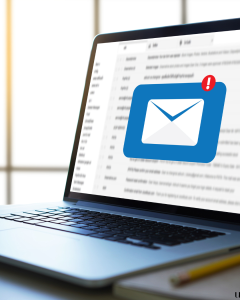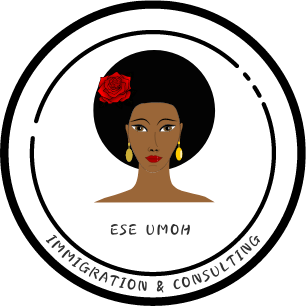Dear future neighbour,
“Waiting for your PR to be approved feels like watching paint dry — except the paint is your entire future in Canada.”
If you’ve submitted (or are about to submit) your Canadian Permanent Residency (PR) application, you already know the excitement and the nerves that come with it. But here’s the thing: sometimes, delays aren’t IRCC’s fault. They’re caused by small but serious mistakes that could’ve easily been avoided.
Let’s save you months of waiting and a few gray hairs by walking through the most common PR application blunders and how to dodge them like a pro.
1. Submitting Incomplete or Inconsistent Documents
This one tops the list every single year.
Maybe you forgot to upload your spouse’s birth certificate, or your employment letters don’t line up perfectly with your work history. IRCC officers are sticklers for accuracy and they will pause your file if something doesn’t add up.

Avoid it:
-
Double-check that all mandatory forms and documents are uploaded.
-
Make sure dates, job titles, and employer names are consistent across documents (résumé, reference letters, pay stubs, etc.).
-
Keep a checklist handy (IRCC has one for each program).
2. Missing Deadlines After an Invitation to Apply (ITA)
Got an ITA through Express Entry? Congrats! But remember – you only have 60 days to submit your full PR application.

Many applicants get caught off guard scrambling for reference letters or translations at the last minute. IRCC doesn’t grant extensions for being “almost ready.”
Avoid it:
Start gathering your key documents before you get invited – things like police certificates, employment letters, and proof of funds can take weeks to secure.
3. Providing the Wrong Proof of Funds (or Not Updating It)
If your proof of funds doesn’t meet the minimum required amount or your bank statement is outdated, IRCC might flag your application. They want to see that your money is:
-
Readily available,
-
In your name (or your spouse’s, if applicable), and
-
Not borrowed or temporarily transferred.

Avoid it:
-
Check the latest required funds on Canada.ca.
-
Include an official bank letter, stamped statements, and clear summaries of balances.
-
Don’t move large sums into your account right before applying – it raises red flags.
4. Overlooking the Details in the Personal History Section
Your “Personal History” (travel, work, study, unemployment, etc.) should have no gaps. Even a one-month blank period can trigger a request for clarification.
Avoid it:
Map out your last 10 years (or since age 18) on paper before filling it in online. List every job, trip, and study period chronologically. Gaps = delays.
5. Errors in Name, Date of Birth, or Passport Information
Yes, this happens way more often than you’d think. Even a small typo (like “Jonh” instead of “John”) can cause your medicals or background checks to misalign with your application.

Avoid it:
-
Double-check every detail before submission.
-
Make sure all documents (passport, language test, ECA report) show the exact same name format.
If you changed your name (e.g., after marriage), include legal proof like a marriage certificate or name change document.
6. Delays in Medical Exams or Police Certificates
Your PR application won’t move forward until both medicals and police checks are cleared.
If your medicals expire mid-process (they’re valid for one year), IRCC may request new ones adding weeks or months.
Avoid it:
-
Book your panel physician appointment early.
-
Apply for police certificates from every country you’ve lived in for 6+ months since age 18.
-
Keep copies of everything you submit.
7. Forgetting to Translate Documents into English or French
IRCC only accepts documents in English or French. Submitting originals in another language (without certified translation) will stall your file immediately.
Avoid it:
-
Use certified translators approved in your country.
-
Include both the translation and a copy of the original document.
-
Avoid using machine or self-translation — IRCC doesn’t accept those.
8. Not Updating IRCC About Major Life Changes
Got married? Had a baby? Changed jobs or address? Those are big updates and IRCC must know about them before your application is finalized.
Failing to update them could cause inconsistencies or even refusal.
Avoid it:
Log in to your IRCC account and use the “Webform” to notify them of changes immediately.
9. Misunderstanding Program Requirements
Some people apply under the wrong program entirely. For example, they choose the Federal Skilled Worker Program instead of the Canadian Experience Class, even though they don’t have foreign work experience or language test scores that meet the cutoff.
Avoid it:
Before applying, read the eligibility requirements carefully on the official IRCC website. If you’re unsure, consult a regulated immigration consultant (RCIC) — they can clarify your best path.
10. Ignoring IRCC Requests or Missing Emails
IRCC sometimes sends additional document requests or clarifications via your account or email. Missing them could mean your application gets closed as incomplete.
Avoid it:
-
Check your IRCC account and email (including spam) every few days.
-
Respond promptly — ideally within 48–72 hours.
-
Keep your contact info up to date at all times.
Need Professional Help with Your Application?

Ese Umoh Immigration is a certified RCIC consultancy, licensed to provide professional immigration guidance. We help applicants understand which program best fits their profile, prepare their documentation accurately, and avoid the kind of missteps that lead to delays or refusals.
Whether you’re applying for a visitor visa, work permit, or permanent residence, creating an Express Entry or Provincial Nominee profile, or preparing your application after an ITA, we’re here to help you get it right the first time.
Schedule a 30-minute / 60- minute consultation or contact us at:
info@eseumohimmigration.com
Let’s make sure your application doesn’t just get submitted – it gets approved.


